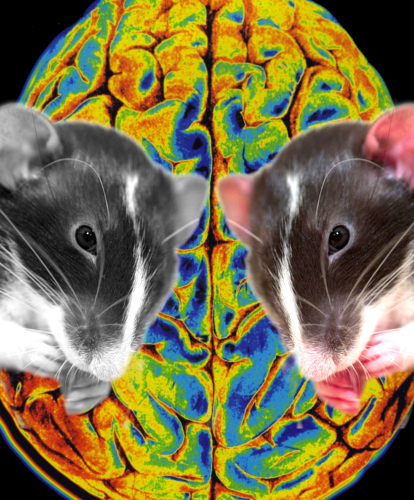Exciting find busts one source of Alzheimer's
 A new study could help destroy a possible cause of Alzheimer’s.
A new study could help destroy a possible cause of Alzheimer’s.
One popular hypothesis about the source of the mental deterioration associated with Alzheimer's disease is that it comes from amyloid beta – a sticky protein that builds up on the brain.
Many experts believe amyloid beta forms hardened plaques in the brain that impede neural communication.
But now, researchers at the Korea Institute of Science and Technology have discovered a chemical that breaks down amyloid plaques in mice, improving their learning and memory functions.
The chemical - called EPPS – is actually similar to taurine, a substance used in energy drinks.
The researchers injected amyloid plaques into the brains of mice so that they would begin to show signs of Alzheimer’s.
They then fed EPPS to the mice through their drinking water, and observed an improvement in the animals’ performance in maze and behavioural tests, compared to untreated mice in a control group.
The researchers then added dyes to the mouse brains to visualise the amyloid beta plaques.
They found those with EPPS in their daily drinking water had significantly reduced levels of amyloid beta plaques, and that substantially higher doses did better at eliminating the formations.
“Our findings clearly support the view that aggregated amyloid beta is the pathological culprit of Alzheimer's disease,” lead researcher Young Soo Kim told reporters.
The EPPS was shown to bind to amyloid beta formations and break them apart by converting the proteins into monomers (singular molecules).
The chemical travels in blood to the brain, where it gets through the blood-brain barrier due to its small molecules.
The artificial Alzheimer's induced in the mice is not the same as the more pervasive degeneration that occurs in humans. ‘Natural’ Alzheimer’s makes proteins clump together over long periods of time, and has worse degenerative effects.
But still, the EPPS treatment offers some hope that further research with the chemical may provide more answers.
It is not yet fully understood whether EPPS will be safe to administer to humans or if the compound would have similar cognitive benefits in people.
“I do not believe EPPS or other amyloid clearing drug candidates will make Alzheimer patients recover their damaged brains,” said Kim.
“However, I strongly believe these drug candidates will halt the neurodegeneration and rescue patients from death.”
The study appears in the journal Nature Communication.








 Print
Print